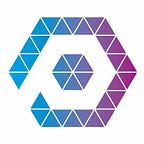Introduction
RainChain Media invited Peijiang Zhu, PalletOne Co-Founder, to share his opinions about Blockchain and Token Economy in PalletOne wechat group. This article is revised based on his verbatim.
What is Token?
Token can be considered as a circulated digital equity certificate. From a more general perspective, tokens don‘t have to depend on blockchain technology. Theoretically, Token can be released base on the credit guarantees. From this point of view, Q coin of Tencent is a kind of token based on Tencent’s credit. However, tokens in blockchain world are more authentic, tamper-resistant and can avoid double-spending problem. On the other hand, if there are no native tokens in a blockchain system, the blockchain will not be so powerful and attractive. A blockchain without tokens is not better than distributed database. Therefore, we say that blockchain and token are complementary.
What Is the Difference Between Coin and Token?
At present, there is no clear line between the Coin and Token. The commons belief is that the coin acts like money on blockchain system to incentive the users to participate and is used for payment, such as BTC and ETH. Meanwhile token general represent the units of value defined by smart contracts hosted on another blockchain. Coin used to be called as currency and token used to be called as asset. In fact, the line between coins and tokens is not clear and the usage is not so strict.
Sometimes we call coin low-order tokens, and call tokens of upper applications high-order tokens. Meanwhile, there can be different tokens in an application and they can be in different levels, which makes it easy to analyze token economy model. So personally, I believe token should be translated into ‘通证’, which represents the sum of liquid digital equity certificate. And coin is part of token.
What’s the Relationship between Token Economy and Blockchain?
As the infrastructure of consensus, blockchain is considered as the infrastructure of consensus, and the core is Token Economy. Token Economy can change product relationship, new economic form, social organization models and create new business models. As to blockchain, it has incentives to achieve consensus and transparency, and can’t be tampered with.
Types of Tokens
From our point of view, tokens can be divided into 4 categories:
Consensus Platform Token
Consensus Platform Token is based on the underlying public blockchain. This kind of token is relatively simple. It acts like consensus incentive, and the user uses the token to pay transaction fee in the blockchain system. This token is usually equipped with infrastructure. For example, when it comes to distributed storage system, incentive tokens will be distributed to those who provide storage space and storage time. Other users can pay the tokens to get storage service.
Value Anchor Token
Value Anchor Token is a kind of token anchoring assets in the real world. First, it requires a strong credit guarantee agency to endorse the anchored value. For example, USDT is endorsed by Tether and every USDT is backed by a US dollar. Besides, the circulation and exchange of Value Anchor Token is based on blockchain system. We can infer from it that many blockchain applications need to be adapted to the real world economic system and organizational form. The combination of centralization and decentralization (or multi-centralization) is a feasible of application solution to blockchain.
Application Ecology Token
If an issued token is bound to an application to an ecosystem that represents the basic value of the platform, then the token belongs to Application Ecology Token. The total amount of Application Ecology Token can be capped and issued additionally according to governance principles. But the specific rights and obligations should be defined clearly in the system to limit the payment function, and pursue long-term stable appreciation.
Financial Equity Token
If a token is linked to the rights and interests of an organization and has a financial attribute, it is Financial Equity Token. Taking the exchange token as an example, the exchange promises to repurchase certain amount of tokens and destroy them with the profit every quarter, which means the token price is related to the profitability of the exchange. In this term, it’s Financial Equity Token.
Application of Blockchain
Blockchain is one of the areas of great concern to the scientific and financial communities and is regarded as the next technology which can subvert the traditional financial industry.
The combination of the real economy and blockchain economic system requires innovative thinking. The core of Token Economy is how to provide reasonable and timely incentives to all parties involved. We believe that incentive mechanism will be the greatest power to propel entity economy because only in this way can the roles of consumers, contributors, and providers of resources overlap.
Conclusion
Blockchain is not a panacea for all problems. Because it has the characteristics of decentralization, de-intermediation, and trustlessness, it suits the scenarios in which multi- stakeholders participate in the system and powerful centralized organizations are not needed. The development potential of the blockchain is enormous, and Token Economy plays a central role in blockchain application.
Introduction to the Speaker and Organizer
Peijiang Zhu:
Co-Founder and CTO of PalletOne, Secretary General of Z-Park Blockchain Industry Alliance. Engaged in network,video as well as blockchain technology research for years. Expert at underlying blockchain technology, consensus algorithm, token economy ecosystem.
RainChain Media:
A community founded by three returnees from North America, gathering a large number of blockchain enthusiasts and technology giants, investment experts, blockchain project founders and blockchain industry media. The community is rather active and holds a wechat group live sharing at 10:30 am every Sunday. By far, there have been 22 sharings and the guests include Jeffrey Wernick(uber investor and PhD in phd in Economics and Finance of University of Chicago), Lin Tan(CEO of Microsoft Accelerator), and Matthew Isganaitis(founder of Volentix).
For more information:
Official website: https://pallet.one/
E-mail: contact@pallet.one
Telegram: https://t.me/PalletOneOfficialEN
Github: https://github.com/PalletOne
Twitter: https://twitter.com/PalletOne_org
Wechat official account: Pallet
